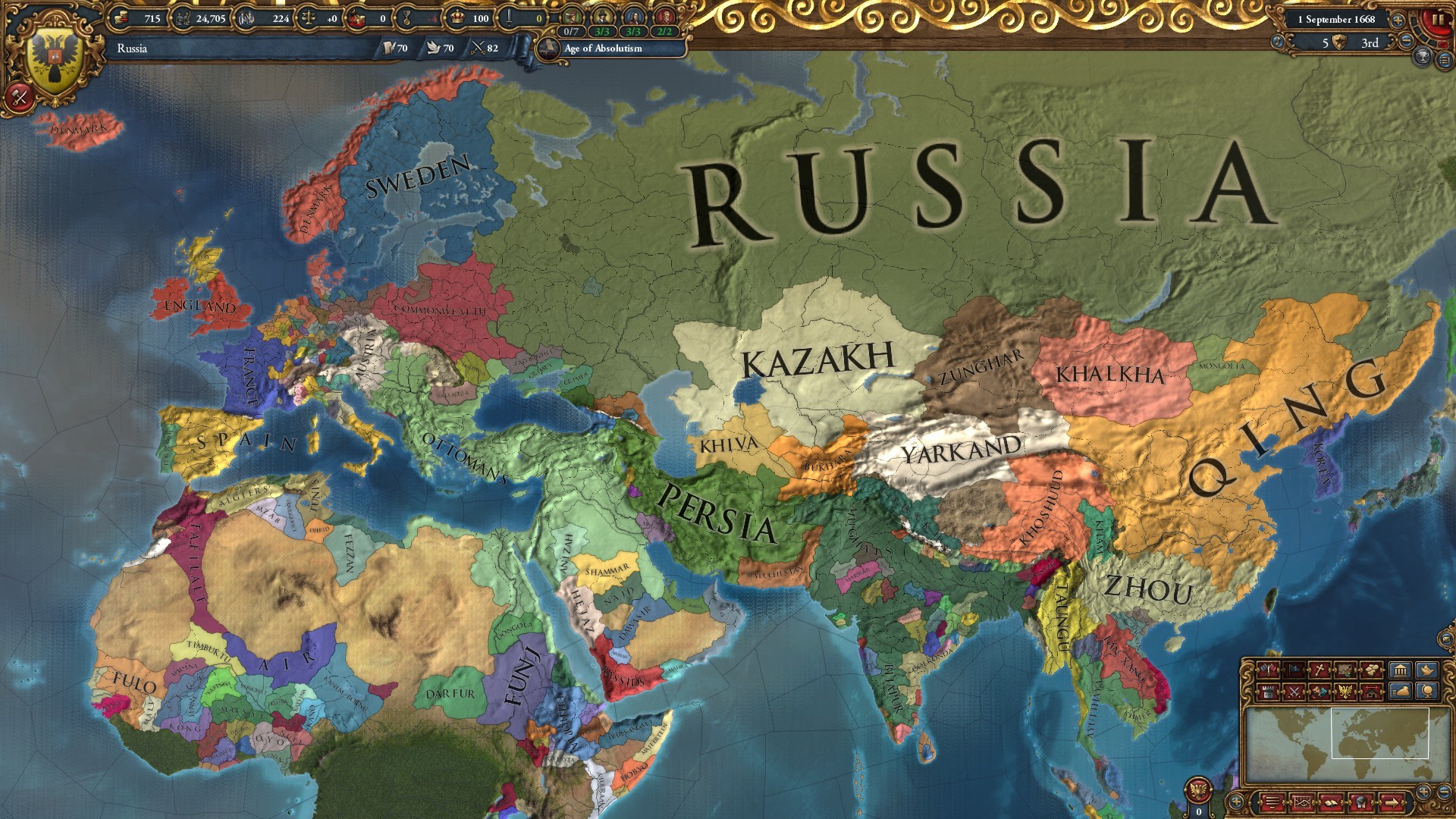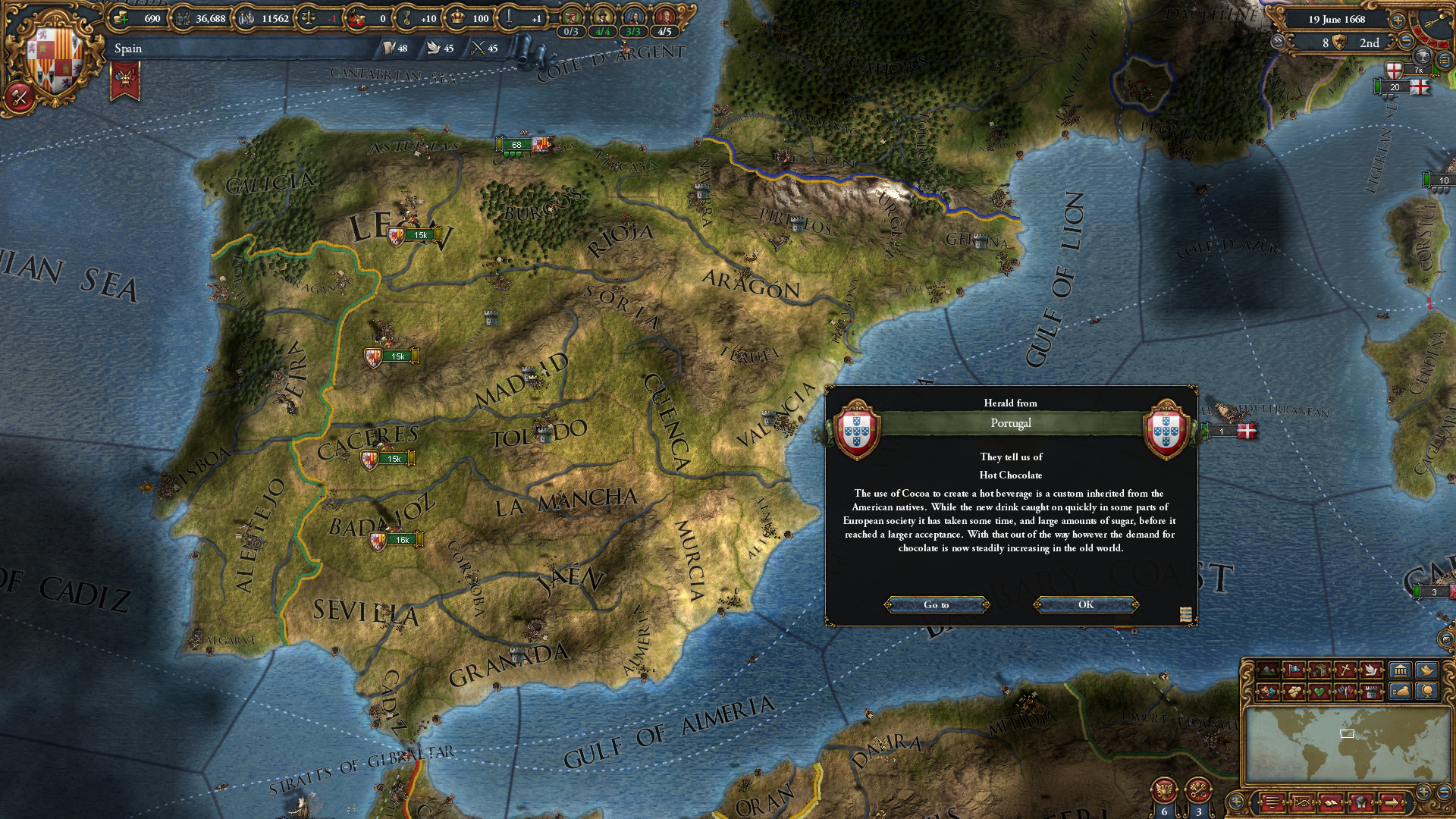

Moving on to the other new additions, I can only say these are all very welcome too. The increased challenge of dealing with dozens of different adjoining states should make playing some of the European countries much more exciting and interesting for veteran players of the game, and it's very certain that a game beginning in 1419 and played out until 1820 is going to look very different in every single game. Look at some of the screen shots at the bottom of this page and you'll see what I mean, these regions look like some kind of crazy patchwork quilt. In contrast, the European map is now even more convoluted and byzantine than ever before, particularly in France and Germany. Granted, there are smaller non-European countries that will offer much more difficult plays (Korea, for example, or Tibet and some of the Indian states), but by and large these new countries start off with far fewer neighbors and therefore far less competition. Even using the Ashantis, who only begin with two provinces, I was able to quickly subdue a couple neighbors while keeping the other two diplomatically suppressed through an alliance. The Incas share South America with one other civilization, but I found them to be a bunch of pushovers.
Europa universalis 5 multiplayer pause free#
Japan couldn't be better situated for a long period of isolated economic development, free from the threat of invasion, while China begins with so many resources it doesn't have to worry about anything. In fact, so far all the non-European nations I've played have been in fairly easy positions. And on a side-note, China is probably one of the strongest positions in the game. So as you can see, not every nation will be handicapped in terms of expansion.

Then I started buttering up one of the Indian states, giving me even more maps. For example, in my game as China, I was able to rapidly build up a powerful army and economy, conquer Vietnam, Shan, and parts of Manchuria, and still have enough money to improve my relations with Tibet so fantastically that we exchanged our discoveries - giving me maps of India and the regions around there. One handy way of gaining additional maps is through diplomacy.

On the other hand, non-European nations aren't completely handicapped in terms of exploration. But without early access to explorers and conquistadors (which is historically accurate, at any rate), I'm not going to get very far, at least initially. For example, as Japan I start the game with most of the world covered up in fog, but I do know of Korea, Manchuria, and China. What's interesting about all these countries is that there is only a limited geographic area that you know about initially, so you get to know that region really well. I started campaigns as Japan, China, the Ashantis in Africa, the Incas in South America, and more. However, starting games as a whole bunch of different nations around the world isn't really a bad way to go when writing a preview and is probably what I would've done anyway, since it gave me a chance to see what all these new non-European nations play like. Fortunately, I was eventually sent a fix for this problem, and just recently I've been able to play complete campaign games. So for about the first week, most of the games I played tended to cover the first fifty years or so of one nation's development, and then when I had to do something else and turned it off, I had to start over with a new country and a whole new game. For starters, I couldn't even save my game, and as you might guess, that can be kind of a problem when you're playing an open-ended strategy game that can take a dozen hours to finish a single campaign. The first thing I noticed was that this was a beta - as 'beta' means an unfinished version of the game.


 0 kommentar(er)
0 kommentar(er)
